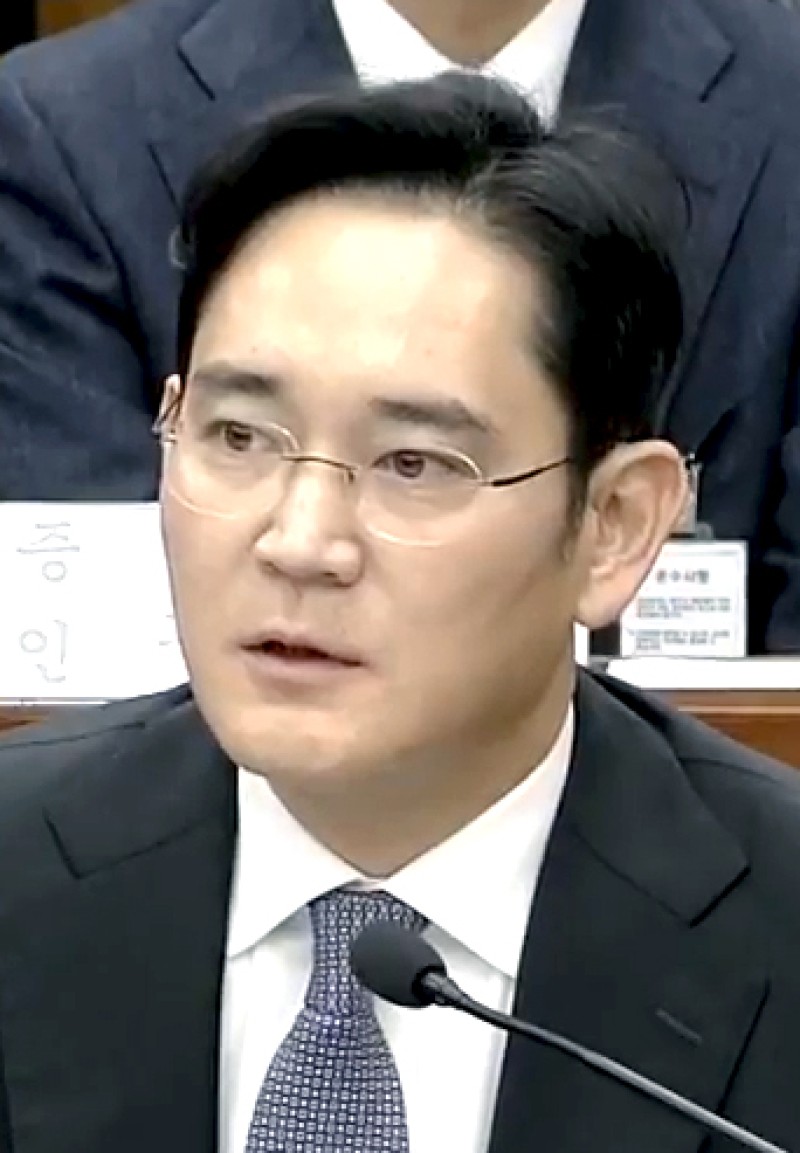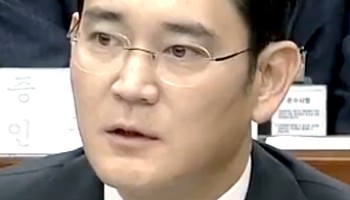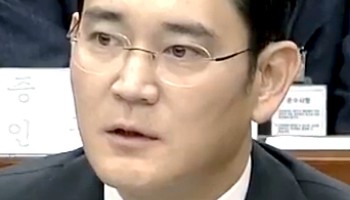Facing a crowd of journalists on his arrival, he offered a brief apology.
“I feel very sorry for causing concerns for many people," he said as protesters jeered.
Speaking at the latest hearing, presiding judge Jung Joon-young lectured the billionaire on how he should behave during proceedings.
“As the head of a company representing our country, I hope you will feel responsible and humbly accept the results of this trial,” the judge said, according to Bloomberg.
Lee was originally convicted by a Seoul court of bribing ex-president Park Geun-hye to help him tighten his grip over the Samsung conglomerate, or chaebol, and shift power from his father, Chairman Lee Kun-Hee.
He served a 354 day sentence before a lower court ordered his release in in 2018.
The Supreme Court overturned part of that ruling in August, saying the lower court had made a “wrongful” decision by releasing the billionaire and had underestimated the number of bribes Lee had handed out.
The decision to seek new bribery charges against the 51-year-old business magnate is the latest in a scandal which toppled the country’s former leader and sent high-powered businessmen to jail.
South Korea’s Supreme Court upheld a ruling last week, sparing the head of South Korean company Lotte Group from more jail time, over charges he bribed ex-President Park Geun-hye.
Shin Dong-bin was initially sentenced to a two-and-a-half-year prison sentence in February 2018 for bribing a close friend of former President Park as he sought to earn a government license for Lotte’s duty free business.
The trial comes as both South Korea and Samsung face economic woes.
Samsung announced in early October a 56 percent drop in its third-quarter operating profit to about 7.7 trillion won (US$6.4 billion). It also said its revenue slid 5.3 percent to 62 trillion won ($51.8 billion).






